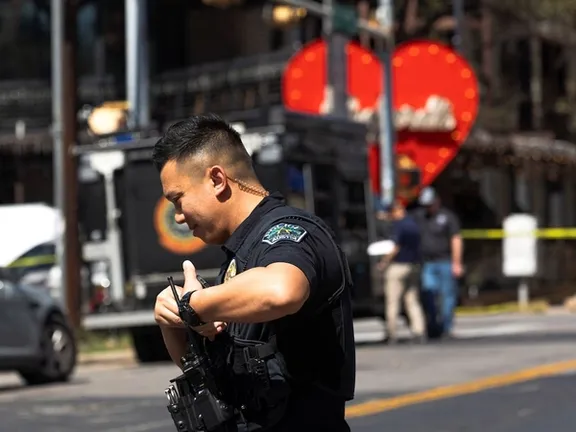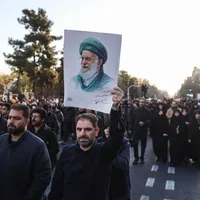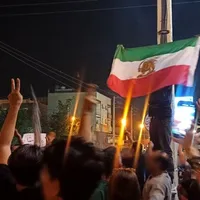During a cabinet meeting on Sunday afternoon, Foreign Minister Abbas Araghchi said while Egypt’s invitation for Pezeshkian was declined, another invitation was extended to him instead.
Araghchi later said on his X account that he too will not attend the Sharm El-Sheikh summit.
"While favoring diplomatic engagement, neither President Pezeshkian nor I can engage with counterparts who have attacked the Iranian People and continue to threaten and sanction us," he said.
The summit will bring together leaders from twenty countries in a bid “to end the war in the Gaza Strip, strengthen efforts to achieve peace and stability in the Middle East, and open a new chapter of regional security and stability,” according to the Egyptian presidency.
With Pezeshkian’s decision finalized, attention shifted to Araghchi. His potential participation could mark Tehran’s cautious engagement — signaling interest without fully endorsing the summit’s framework.
Had Araghchi accepted the invitation, Iran could define how it navigates its revolutionary identity while engaging with the emerging regional order shaped by the Trump-brokered Gaza ceasefire.
Tehran is split between those who view participation as a betrayal and those who see it as a diplomatic opportunity.
Many Iranians online pointed out that the decision to accept or reject such invitations ultimately depends on Supreme Leader Ali Khamenei’s approval, not the president.
Reformists call it ‘historic opportunity’
Moderates and reformists urged Pezeshkian to seize what they called a rare diplomatic opening.
Prominent reformist journalists Mohammad Mohajeri and Mohammad Ghoochani issued a joint statement urging Pezeshkian “not to miss this historic opportunity.” They argued attending would not signify recognition of Israel but align with Iran’s strategy of indirect negotiation. Their message: “If (the chance in) New York (during the UNGA summit) was lost, seize Sharm el-Sheikh.”
In a post on X, former diplomat Hamid Aboutalebi, a longtime adviser to ex-president Hassan Rouhani, called the reported US invitation as “a positive and welcome signal,” even if informal. “It shows a desire to return to dialogue and constructive engagement,” he said, suggesting it could pave the way for “direct and comprehensive talks.”
Aboutalebi stressed that Iran had “paid a heavy price for the Palestinian cause for over four decades” and should not be absent as results are achieved.
He continued: “Iran’s role must not end with resistance — it should extend to reconstruction and state-building. Staying out would waste our strategic investments in the Axis of Resistance.”
Reformist figure Ghorbanali Salavatian echoed that sentiment in a post on X, urging Tehran to send former foreign minister Javad Zarif if it participates: “The Sharm el-Sheikh summit should be seen as an opportunity. Let’s remember — Israel is not attending.”
“The West and the Islamic world have agreed on a plan for Gaza. Iran should attend, reaffirm its stance, and engage with the world.” Playing on the host city’s name, he warned: “Don’t turn ‘Sharm el-Sheikh’ into shame for the officials!” wrote user Hamed Hesari on X.
Hardliners warn of betrayal
Hardline figures vehemently oppose any participation, arguing that sitting at a table hosted by Donald Trump would mean “recognizing the Zionist regime, accepting the defeat of the Palestinian cause, and undermining Hamas.”
Abdollah Ganji, former editor-in-chief of the IRGC-linked Javan newspaper, dismissed moderates and reformists’ calls to attend as “a new show by naïve dreamers.”
Hardline user Mohammad Sajjad Parchami posted: “The leg of Pezeshkian — or anyone representing the government — who wants to attend Sharm el-Sheikh must be smashed.”
Strategic arguments
Some foreign policy experts also backed participation on pragmatic grounds.
Analyst Reza Nasri wrote in a post on X that three decades after being excluded from the Madrid peace process, this summit could be “a new beginning.” He warned that Iran’s absence would allow others to “shape arrangements unfavorable to both Iran and Palestine.”
Former ambassador Nosratollah Tajik added in a post on X: “Iran’s absence won’t heal the Palestinians’ pain. Participation, however, would signal a new behavioral model — a soft power card that can become a lever of influence.”
In their joint statement, Ghoochani and Mohajeri further argued that participation could strengthen Iran’s ties with Arab states such as Egypt and Saudi Arabia and help reduce international ‘Iranophobia’ linked to the nuclear issue.
Criticism over indecision
Even before Pezeshkian declined the invitation, many criticized his indecision.
Moderate journalist Mostafa Faghihi posted on X: “It’s obvious Iran should attend — but we can easily predict it won’t. The decision must balance national interests, regime expediency, and the demands of hardliners.”
Veteran reformist journalist Ali Hekmat voiced frustration in a post on X: “This government lacks even the ability to influence complex situations on a limited scale. Mr. Pezeshkian has failed to deliver on his promises.”
A user posted with the hashtag #SharmElSheikh: “The people were wrong to think there was a difference between Raisi and Pezeshkian. This system makes everyone the same.”






